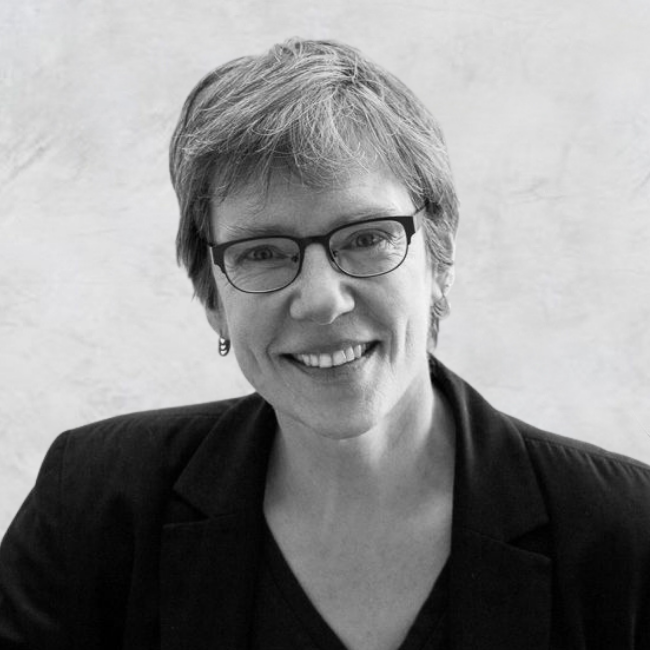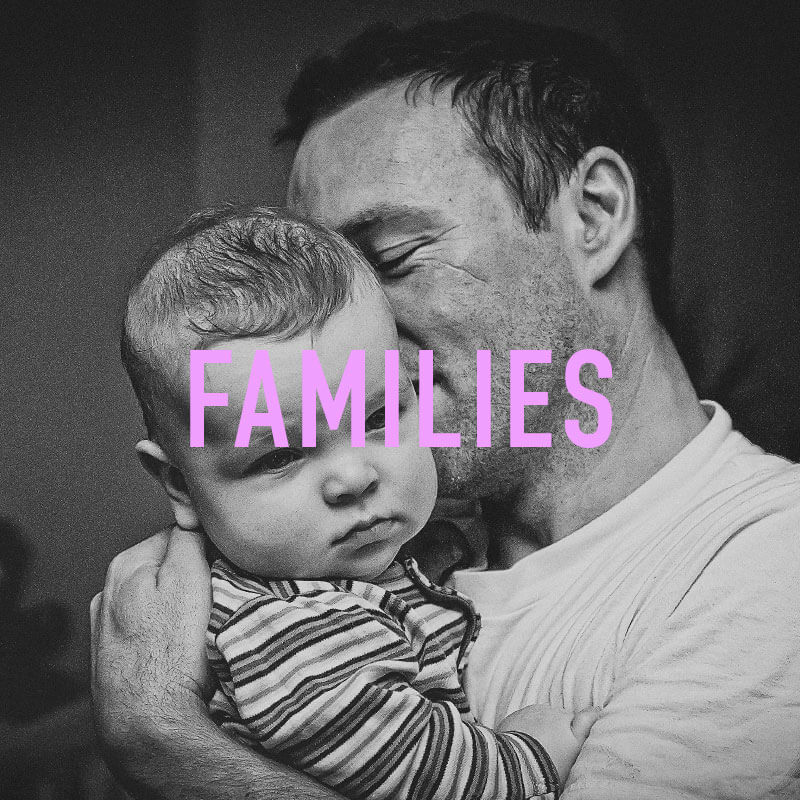Uncivil attention: The antidote to loneliness

Uncivil attention: The antidote to loneliness
Opinion + AnalysisRelationships
BY Dr Tim Dean 14 JUN 2022
We have built ourselves a lonely world but there are ways to forge the genuine human connections that we all need to flourish.
We live in a strange world. Consider the skill that many of us have carefully cultivated over years of city living of actively ignoring other people around us while hoping that those people will actively ignore us in return.
Think about how you enter a lift in a busy shopping centre or an office building. Perhaps a quick glance at those already standing inside, a small shuffle to ensure you’re not standing too close to anyone else, a quick tap of the “open door” button to allow a latecomer to enter, a fleeting smile to acknowledge that they almost missed it, and then you diligently stare into space desperately hoping no-one starts a conversation. Some lifts even mercifully include little screens displaying the weather and news headlines that offer everyone inside a sink for their collective attention.
This is a textbook example of what the Canadian sociologist Ervin Goffman called “civil inattention”. This is our tendency to actively not engage with those around us while not ignoring them entirely.
Civil inattention enables us to ensconce ourselves in a protective bubble of anonymity even while we’re shoulder-to-shoulder with other people. It’s both a defence mechanism that prevents us from having to constantly expend social energy interacting with every individual we encounter while also being a social lubricant that allows millions of strangers to coexist in relative peace.
The price of this unwritten social contract of non-engagement is loneliness. Indeed, it’s easier to feel isolated and disconnected from others in the middle of a bustling city than it is in a small town.
And with the growth of high density living over the last several decades so too has loneliness spread, especially in the wake of the COVID-19 pandemic. Loneliness was already prevalent prior to the advent social distancing and enforced lockdowns, but recent surveys have revealed a sharp increase, with over half of respondents reporting they have experienced loneliness during the pandemic.
Contrast the civilly inattentive world to the social world that our minds have evolved to expect. That is a world laced with rich social interaction, one where our very identities are interlaced with those around us. It’s a world that our ancestors dwelt in for thousands of generations, a world that shaped our minds, and one that only changed with the advent of high density living.
The anthropologist Lorna Marshall vividly described the intimate connectedness among one small-scale society, the Nyae Nyae !Kung people of the Kalahari desert.
“Their need to avoid loneliness, I think, is actually visible in the way families cluster together in their werfs and in the way people sit, often touching someone else, shoulder against shoulder, ankle across ankle. Comfort and security for them lie in belonging to their group, free from hostility or rejection,” she wrote.
This is the world where belonging is a given and it’s almost impossible to be alone. It’s the world that many modern folk seek out through social media, popular culture, the bustle of city life or even religion. These give the trappings of connectedness but they’re all ultimately based on illusion. What we yearn for is the opposite of loneliness: genuine connection.
The good news is that there are ways to build genuine connection. One way to do so is just by having better conversations.
You can think about Goffman’s civil inattention as being a mask of civility that we wear in public that presents the face that society expects us to have but also covers our deeper self. It’s a defence mechanism but it’s also a barrier to genuine connection.
We can see this in many of the conversations we have with friends and colleagues, where we’re expected to talk about how well we’re doing, about our successes and triumphs. This tendency is only amplified on social media, where we have even greater opportunity – and expectation – to curate a positive image or flex about our privilege (#blessed).
But to really connect with someone, we need to go beyond our respective masks to reach the whole person underneath, including their strengths and their vulnerabilities, their successes and their failures, their hopes as well as their fears. It’s in the mutual recognition that we’re all complex and flawed beings, often stumbling our way through life, that we can build genuine connection.
This doesn’t mean we should be opening up to strangers about our greatest blunders in a lift, but it does mean allowing ourselves to lower the mask a little at a time around friends, acknowledging some of our vulnerabilities and helping them to feel comfortable doing the same. It means asking questions about more than just what they did on the weekend or which footy team won or lost. It means asking how they felt about it, what they hope for, what they regret or what they learnt. And it means shutting up and really listening to them, withholding judgement and validating how they feel.
You might be surprised at how quickly a good conversation, one where you lower your mask even a little, can build a connection that is meaningful and lasting. Sharing a little of our deeper self and getting to know a little of others’ deeper selves can feel confronting, it can challenge societal norms of what polite conversations look like, but they are also one of the greatest – and easiest – antidotes to loneliness. I call it “uncivil attention”.
Ethics in your inbox.
Get the latest inspiration, intelligence, events & more.
By signing up you agree to our privacy policy
You might be interested in…
Opinion + Analysis
Health + Wellbeing, Relationships
Pop Culture and the Limits of Social Engineering
Opinion + Analysis
Health + Wellbeing, Relationships, Science + Technology
When do we dumb down smart tech?
Opinion + Analysis
Relationships, Society + Culture
Meet Joseph, our new Fellow exploring society through pop culture
Opinion + Analysis
Politics + Human Rights, Relationships
A critical thinker’s guide to voting
BY Dr Tim Dean
Dr Tim Dean is Philosopher in Residence at The Ethics Centre and author of How We Became Human: And Why We Need to Change.
Meet Joseph, our new Fellow exploring society through pop culture

Meet Joseph, our new Fellow exploring society through pop culture
Opinion + AnalysisRelationshipsSociety + Culture
BY The Ethics Centre 7 JUN 2022
From The Matrix to Euphoria, writer, philosopher and poet Joseph Earp has profiled some of the greatest philosophers, TV shows, films, music and pop culture moments to date, discussing what they can tell us about ourselves and the world.
Which is why we’re excited to share we’ve recently appointed Joseph as an Ethics Centre Fellow. Currently undertaking his PhD at The University of Sydney, studying the work of David Hume, we sat down with Joseph for a brief get-to-know-you chat to discuss ethics, his favourite philosophers, and the role of pop culture in society.
Tell us, what attracted you to becoming a philosopher?
You learn the language of institutional philosophy by reading it, and – as long as your financial and geographical circumstances allow for it – by studying it in an academic setting. But the central questions that drive philosophical work are innate to almost all people, regardless of academic study.
I am a pragmatist, so I don’t believe that philosophers hold insight that stretches beyond the understanding of those who haven’t studied the discipline. As philosophers, we are merely using a certain vocabulary to ask our questions. I grew to love that vocabulary in my late twenties through university study, under the guidance of my honours and PhD supervisor, Anik Waldow and those academics I studied closely with throughout my undergraduate degree. Most notably, these academics include Caroline West, who I believe to be one of our country’s most unique, inspired, and challenging thinkers – even and especially as I disagree with her – and David Macarthur. My study with these people is what drew me to being a philosopher in the strictest sense. But I think we philosophers are, thankfully, just doing what everyone else is doing.
Do you specialise in any key areas?
Generally, I write about popular culture, emotion, and virtue ethics, but my key area of specialisation is the philosophy of sex. I think that we sadly retain, in many cultures, a suspicion and fear of sex – one that infringes on our ability to self-describe and live our most flourishing lives.
I often think of a story about Pablo Picasso. Towards the end of his life, he was so rich and famous that he could draw any object in the world, whether it be a Ferrari or a mansion, and his drawing would be worth more than the object itself. He could sell a sketch of an object, and use the accrued capital to buy that object – which is a way of saying he could create changes by charting what he felt had already changed. It seems to me that’s the potential, and the potential harm, of philosophical thinking. We construct the world by calling it what we think it is, and for a long time, our views on sexuality have created a world that contains a lot of fear and sexual repression, both internally and externally maintained.
Your honours thesis focuses on emotional contagion. What place does emotion have when it comes to ethics?
Personally, I think it’s emotion all the way down when it comes to ethics, as with most things. David Hume is the philosopher that much of my work has operated in the framework of, and I agree with Hume that when we talk about “rationality” – a word that is sometimes conceived as being opposed to emotion – we are really just talking about a certain kind of emotional work.
What have you been working on this year?
One of the most profound experiences of both my intellectual and personal life has been connecting with a community of thinkers whom I met largely through my university work – all of them world-class philosophers, some of them write for, and work with, the Ethics Centre; and some of them no longer consider themselves strictly philosophers at all. In particular, Georgia Fagan, Danielle Turnbull, Finola Laughren, Eleanor Gordon-Smith, Grace Sharkey, Oscar Sannen, Mitch Flitcroft, Alexi Barnstone, Elle Lewis, Mitchell Stirzaker, Henry Barlow, Zach Wilkinson, Finn Bryson, and Henry Hulme.
All of these people have work that you can, and should, find online through an easy Google search, and work which I believe in every case benefits the world, and drives real change. What else is philosophy for? I am continually astonished by the intellect and bravery of these collaborators and friends. I consider myself useless without them. When I think about the real work that I have done this year, it is not anything I have written, but conversations with these people, and the ways I have learnt from them.
Do you have a favourite philosopher or writer?
Hume is the philosopher whose writing I know best, but I believe the thinker you apply the greatest amount of study to is usually the one who you have the strangest, most frequently frustrated relationship with. So my favourite – as in, the philosopher who serves as the background to almost all of what I think and do, and who I have the most uncomplicated connection to – is the pragmatist Richard Rorty. It’s Rorty who cuts through the chaff by asking, again and again, one of the simplest questions: what is the real-world application of our work? And it’s Rorty who tells us that we should remember we can make ourselves whoever we want to be.
Your writing covers a lot of tv series, films and music. Why is pop culture important?
Again – it’s Rorty. Rorty believed that social change isn’t led by philosophers, particularly those analytic philosophers who consider their work to be sorting through “falsehoods” and “truths”. For Rorty, philosophers inspire prophets and poets, and prophets and poets are the ones who do the work of change. That is, for me, the importance of pop culture. That form of art is guided by philosophical questions, and led by prophets and poets, and represents a way of understanding a culture and a vocabulary. It’s how lives are changed, and possibilities for self-description are opened up
What are you reading, watching or listening to at the moment?
The poetry collection The Cipher, by Molly Brodak, a writer who means a great deal to me; the pornographic film Corruption by perennial sadsack and visionary Roger Watkins, which I try to return to every month or so; and the song ‘Lark’ by Angel Olsen, often enough that I should probably take a break.
Let’s finish up close to home. What does ethics mean to you?
We all play the game of ethics, and we all want to play it better, and we’ll never play it well. That, in fact, is the joy – the trying, and the starting again.
Ethics in your inbox.
Get the latest inspiration, intelligence, events & more.
By signing up you agree to our privacy policy
You might be interested in…
Opinion + Analysis
Health + Wellbeing, Relationships
The etiquette of gift giving
Explainer
Relationships
Ethics Explainer: Negativity bias
Opinion + Analysis
Society + Culture
We are pitching for your pledge
LISTEN
Health + Wellbeing, Business + Leadership, Society + Culture
Life and Shares
BY The Ethics Centre
The Ethics Centre is a not-for-profit organisation developing innovative programs, services and experiences, designed to bring ethics to the centre of professional and personal life.
Ethics Explainer: Trust

Trust forms the foundation for relationships, cooperation, social interaction and the development of societies, but it is equally important as it is dangerous.
From hunter-gatherers to globalised societies, trust is the essential lubricant of social functioning at any scale.
Imagine something as simple as driving to get groceries. You leave your house, get in your car and drive to the shops. In doing so, you’re relying on several overlapping layers of trust that are engrained in our society. You trust that:
- your neighbours won’t break into your house while you’re gone
- the police will deal with them appropriately if they do
- the insurance company will deal with you fairly if they do
- the manufacturer of your car was responsible and competent
- the other drivers on the road will all obey the traffic laws
- your money has retained its value and that the shopkeeper will take it
and so on. Almost every aspect of our lives depends on these underlying relationships of trust with the people around us, and when they are betrayed – especially repeatedly – they can crumble and leave behind instability.
When we trust others, we’re depending on them to fulfil expectations that aren’t guaranteed to be met and that leaves us vulnerable or at risk.
Vulnerability is an important aspect of trust; it creates a tricky tension between our need to rely on others and our need to protect ourselves from risk and harm. To avoid vulnerability and guard against betrayal, we might decide not to trust anyone, but that leads to a miserable life: a life devoid of friendship or intimacy, and ultimately of convenience too, as we need to trust strangers on an almost daily basis, from taxi drivers to teachers to police.
So, we must trust others and learn how and when to be vulnerable to live a fulfilling life.
We trust people by giving them the space and freedom to do what they have been trusted to do, without necessary observation or oversight, with the expectation that they’re:
- Competent enough to do what they have been trusted to do and
- Willing to do it.
“Trust is an ability to rely on somebody to do what they have said they will do, even when no one is watching them” – Simon Longstaff AO
Trust and trustworthiness
An important distinction is the difference between trust and trustworthiness. Trust is an attitude that we have towards others (or sometimes ourselves!) that indicates our hope or expectation that the object of our trust is trustworthy.
Trustworthiness is a property or characteristic of others and in ideal situations has a reciprocal relationship with trust. That is, ideally, trust is an attitude towards trustworthy people, and trustworthy people will be trusted.
Of course, we have all experienced that we don’t live in an ideal world. Often untrustworthy people are perceived to be trustworthy because of lies, clever marketing or overwhelming charisma. Equally, trustworthy people can often be misrepresented to appear untrustworthy.
Interpersonal trust and institutional trust
There are two kinds of trust, the most common and intuitive kind being interpersonal trust – that is, trust between individuals. We might trust our friends with secrets or trust our family with babysitting or trust other drivers with our lives on the road.
A trickier kind of trust is that of institutions and government. They’re not as directly accessible as individual people
Nevertheless, we can and do trust institutions and governments to do as they say they will do, or what they are supposed to do: act in the interests of their people. This is a hallmark of society. But when this trust is eroded, we are left with an eroded society.
The ethics of trust
One of the first practical problems is knowing whom to trust. It’s easy to rely on perceived authority figures in our lives, and often we will simply need to trust that the people who are close to us are looking out for us, but in general we should be on the lookout for consistent moral behaviour.
Ultimately, there is no way to know whom to trust with certainty, but there are many indicators we can use to decide. Are they an honest person? Have they been reliable in the past? Are they self-centred or do they concern themselves with the wellbeing of others? Answering questions like these can help to minimise the risk you take on if you choose to trust someone.
- How do we rebuild trust?
- How should we act if we don’t trust someone?
- If someone breaks our trust, should we distrust them?
- When or how often should we re-examine our trust of someone?
- When is trust a good thing? When is it bad?
- What’s so important about vulnerability?
Answering these questions involves a complex mix of knowing how trust works, knowing the habits, motives and values of others, and knowing ourselves.
Ethics in your inbox.
Get the latest inspiration, intelligence, events & more.
By signing up you agree to our privacy policy
You might be interested in…
Opinion + Analysis
Relationships
Ask an ethicist: Should I tell my student’s parents what they’ve been confiding in me?
Opinion + Analysis
Health + Wellbeing, Politics + Human Rights, Relationships
People with dementia need to be heard – not bound and drugged
Opinion + Analysis
Relationships
Power and the social network
Explainer
Relationships
Ethics Explainer: Negativity bias
BY The Ethics Centre
The Ethics Centre is a not-for-profit organisation developing innovative programs, services and experiences, designed to bring ethics to the centre of professional and personal life.
You won't be able to tell whether Depp or Heard are lying by watching their faces

You won’t be able to tell whether Depp or Heard are lying by watching their faces
Opinion + AnalysisPolitics + Human RightsRelationshipsSociety + Culture
BY Joseph Earp 2 JUN 2022
The Johnny Depp and Amber Heard defamation trial is now over.
Heard has been found guilty of defaming the actor with an op-ed she wrote – that did not name him explicitly – about being a survivor of domestic violence. Depp’s legal team too has been found guilty of defamation, but the amount that Heard has to now pay Depp is a much higher figure than he has to pay her.
The proceedings are done. But the media reaction to the trial – both from traditional outlets, and the deluge of posts about it crowding every single social platform like ants across an old plate of food – will linger.
This is because, in many circles, the all-too public spectacle has been treated like an unprecedented event. Pored over ad nauseum, it has been subject to endless thinkpieces, YouTube breakdowns, and Twitch streams. Twitter is awash with “fan edits”, compilations of carefully selected moments cut to the jaunty music usually associated with dance trends, or videos of dogs playing with each other in suburban backyards. There’s no use blocking keywords associated with it on social media. Videos still find a way to slip through, because the trial is everywhere.
This isn’t so surprising. The trial is on one level, a glimpse into the personal lives of the usually alien upper class. On another, it is shocking and disturbing enough – whichever side one takes – that it provides the vicious thrills that a culture which has become obsessed with true crime obsessively seeks out. This is all information, content. But how much of it do we need to make an informed decision about the outcome of the trial? And more than that, is this a useful kind of information? Where does it lead us? What does it give us?
The trial is foreign, it’s taboo, it’s ugly, and it’s glossy. What it isn’t, however, is quite as novel as it first seems.
Old Stories; New Faces
Much like the O.J. Simpson trial, or the proceedings against Lindy Chamberlain-Creighton, the Australian woman who claimed a dingo ate her baby, the Depp/Heard case is an example of a media-captivated society channeling abstract arguments through the lens of a high stakes legal proceeding, populated by faces that viewers have already developed complex parasocial relationships with. And, importantly, in each case, there has been an intense public scrutiny on how the figures in these cases should act – a fixation on their body language, their expressions, and the way they sound out words.
During the Simpson trial, the abstract arguments at play concerned race relations. Now, the tensions underlying the Depp/Heard trial are to do with what is sometimes referred to as our “post-metoo world”, a culture that has seen abusers reckoned with, and vast systems of deception that protect those abusers brought to light.
All of these court cases represented, and now represent, an opportunity for the public at large to discuss topics they might not normally have considered polite to bring up at the dinner table, or around the water cooler. “Is O.J. guilty?” was a way of saying, “tell me what you think about race and class in this country.” “Is Amber Heard a liar?” is now a way of saying, “what do you think abuse looks like? And what do we do about it?”
But there is at least one way that the Depp/Heard trial is involved with a trend that is breaking new ground. Unlike the Simpson trial, or the case against Chamberlain-Creighton, most viewers are watching the case through the internet. In turn, that means viewers have a unique ability to craft their own content about the proceedings, filtering key moments pulled from hours of footage through whatever pre-existing narrative they have constructed about the hero and the villain of this painful, and very sad story.
These content creators, who are often cutting together their videos in their spare time for no gain except rallying their audience around them, can watch over the trial’s footage as frequently as they like. They can scrutinize the same few seconds over and over; slow stretches of it down; freeze them in place.
In turn, that has turned a growing number of these amateur video essayists into amateur psychologists. A large subset of Depp/Heard content creators have come to believe that they can work out which of the players are lying by closely watching their expressions, unpacking their body language, and picking over the slightest tic, or absent gaze. For these sleuths, the case’s conclusion is as clear as Heard’s grimace, or the smile unfurling in the corner of Depp’s lips.
The Face Of A Liar
Those who seek to excavate the “truth” hiding beneath the trial by studying the body language and facial expressions of Depp and Heard start from a justifiable philosophical position. It was the philosopher Baruch Spinoza, a famous monist, who believed that every bodily state is underwritten by a mental state. For Spinoza, all things are of the one matter – variously called “nature”, or “God” by his intellectual interpreters. On this view, there is no distinction between any two substances, let alone a distinction between the way we hold ourselves, and what we think. The mind is the body, and the body is the mind.
From this starting point, it makes some sense to believe that the flesh might hold some insight into the secret thoughts and desires of two people who are very famous and very rich – and thus largely inaccessible, because nothing buys privacy like money and influence. Or, if not insight, then evidence gathered as post-hoc justification. Decisions as to guilt change based on a variety of factors – but they’re sometimes made early, and data can be gathered after those decisions have already been made, propping up pre-existing positions.
The mistake, however, is to generalise what these embodied states look like, and thus to generalise the emotional and mental states they are tied to.
There is, quite simply, no one way that all of us look when we lie, or are distressed, or happy. We are distinct in the way that we consider the world around us, and thus distinct in the way that we physically appear when we do.
Many of the “tell-tale signs” that get neurotically returned to, over and over again, on social media – Heard’s tone of voice, Depp’s drawl – could have any number of associated affective states, from anxiety, to pain, to yes, perhaps, the desire to lie. “It can be tough to accurately interpret someone through their body language since someone may feel tense or look uneasy for so many reasons,” said the therapist and author Dr. Jenny Taitz.
If we follow Spinoza, we will believe that our bodies and our thoughts are intertwined – but that’s not the same as saying the former will reveal the latter. These are slabs of affect, expressed both physically and mentally, but they are not as easily comprehensible as that makes them sound.
Indeed, psychological studies have proved for decades that none of us are skilled when it comes to weeding out those spinning “falsehoods”, and those not. A 2004 study of lying found that “agents of the FBI, the CIA and the National Security Agency – as well as judges, local police, federal polygraph operators, psychiatrists and laymen – performed no better at detecting lies than if they had guessed randomly.”
There is, after all, an immense social advantage to picking liars. If we could do it, and do it reliably, then that would be an invaluable skill, one we would expect to spread and be adopted across communities quickly. The fact that there is no dominant method of analysing the way our bodies twist and pose when speaking in itself speaks to the impossibility of using faces to get at what we mean when we talk about “the truth.”
Moreover, even most “body language experts” – an increasingly popular and media-saturated sub-set of pop psychologists, who have almost no science to back up their claims – admit that we need to get a baseline of our subject’s physical reactions before we can even attempt the fraught and mostly doomed work of trying to understand if they’re lying.
Which is to say, we need to at least know what people look like when they’re telling the truth before we can tell if they’re not. And we don’t know Johnny Depp, or Amber Heard, despite the illusion of closeness granted by social media. We don’t have enough data about how they move through the world, or what they look like when they do. How could we possibly guess at the motives and thoughts of utter strangers?
The Actors
Heard’s critics in particular have developed the line that she is a “performer”, going through the mere motions of grief and trauma – and not particularly well. They highlight a moment in which Heard appeared to pause while waiting for a cameraperson to snap a picture of her pained face, and another in which she seemed to flicker, composing herself for her next line as an actress on set would.
Of course, Heard is performing, on some level. But she is not performing in a way different to Depp. Though his defenders do not often note it, he too is signaling to the cameras, and to the jury – his smiles, and asides to his legal team, make that clear.
Nor, even, are these two distinct from the rest of us. We are all performing. We are social creatures, who have the ability to tell when we are being watched by others. Theory of mind, the term used to describe our understanding that other human beings see and think like we do, means that we can throw ourselves into the perspective of our observers. We do this constantly. It is part of what it means to have a body, and to be a person.
As philosopher Jean-Paul Sartre pointed out, we don’t even have to be actively watched to know that we could be watched. We carry with us the sense that we are what Sartre called a “thing in the world” – an entity that, at any time, could be stumbled across, and studied. As a result, we are always aware of ourselves, and how we might appear. Even when we are totally alone, we are never really alone. We are always with others – whether they’re flesh and blood observers, or ones we’ve made up in our head.
Where The Truth Lies
None of this has been an attempt to argue that Depp is telling the truth over Heard, or vice versa. It is not even a question of “truth”, as that word has been contemporaneously used.
The binary between the “real” and the “fake”, aggressively emphasised in media reactions to the trial, is itself overly simplistic, an outdated harbinger dangerously trickled down into the culture by analytic philosophy.
That is not to diminish the hurt, or the trauma, that clearly sits at the centre of the trial. That pain is real. That pain can be understood, but only when we look at the evidence in totality – the actual evidence, not the faces on the stand – and then causally tie it to certain parties.
We should, however, remember there is no objective state of affairs – no perfect place from which, like God, we can dispel the lies and embrace the world as it really is. The judge overseeing the Depp/Heard trial is not neutral. None of us are. At best, in this case as in so many others, we should, like the great pragmatist Richard Rorty, argue for ethnocentric justification for our claims, rather than tying them to a standpoint that sits outside of history, and belief, and bias. In doing so, we can embrace the changeability of our own positions – not on guilt and innocence, exactly, but the societal pressures that are so at play here – and examine them, seeing them as the flexible systems of thought that they are.
Throughout, however, we should remember that whatever we’re looking for when we hope to untangle a messy and painful relationship between two strangers who we will almost certainly never meet, it will not be found in their faces.
Ethics in your inbox.
Get the latest inspiration, intelligence, events & more.
By signing up you agree to our privacy policy
You might be interested in…
Opinion + Analysis
Relationships
From capitalism to communism, explained
Opinion + Analysis
Politics + Human Rights, Relationships, Science + Technology
Parent planning – we shouldn’t be allowed to choose our children’s sex
Opinion + Analysis
Relationships
5 lessons I’ve learnt from teaching Primary Ethics
Opinion + Analysis
Health + Wellbeing, Relationships
To live well, make peace with death
BY Joseph Earp
Joseph Earp is a poet, journalist and philosophy student. He is currently undertaking his PhD at the University of Sydney, studying the work of David Hume.
Big Thinker: Sally Haslanger

Sally Haslanger (1955-present) is one of the most influential feminist philosophers in contemporary philosophy. She is one of the pioneers of social philosophy and works to make the field of philosophy more inclusive.
She has some interesting life experiences, to say the least. Haslanger was born in 1955 in Connecticut, but moved to Los Angeles in 1963, where Jim Crow laws legalising racial segregation were still in effect. Moving from an unsegregated to a segregated part of the US as a child had an impact on her philosophical interests.
Her mother and grandmother were Christian Scientists, a small sect of Christianity that doesn’t believe in modern medicine, and she grew up attending their church. Later, her family moved to Texas where she attended an Episcopal boarding school, and started college before she had finished high school.
In a Q&A with the Massachusetts Institute of Technology ( MIT), Haslanger says that her interest in feminist philosophy was catalysed when she was sexually assaulted as an undergraduate student at Reed University. Afterwards, she became involved in feminist activism, especially during her time as a graduate student at University of California, Berkeley. Later in life, she and her husband adopted and raised two African-American children. Haslanger says that these life experiences have played an important role in directing her philosophical interests.
What is race? What is gender?
While these seem like straightforward questions, Haslanger has spent a large part of her academic career trying to answer them. Race and gender are categories that allow us to group people in particular ways, predominantly based on physical characteristics. However, she doesn’t believe that the categories of race and gender refer to just physical characteristics, they also refer to social positions. Social positions refer to where someone fits into their society: – they could be in a privileged position or a more marginalised one.
“On my view,” she said, “both race and gender are social positions that individuals occupy by virtue of their body being interpreted a certain way.”
In 2000, Haslanger published what is now one of her most well-known and controversial papers: Gender and Race: (What) are they? (What) do we want them to be? In her paper, one of the things she tried to do is find a characteristic that all women have or experience. The characteristic she finds and defends in her paper is systematic subordination. On Haslanger’s view, to be a woman is to occupy a lower position in society because of the way that her body is interpreted by others.
Her definition sparked controversy amongst transgender rights activists. Some people identify as women, but are not necessarily perceived by society as women. Haslanger’s definition of a woman excludes these people, – namely, trans women who have not yet transitioned.
Since the paper was published, Haslanger has taken on a lot of the criticism and worked to make her definition more inclusive. However, she still holds that gender and race refer to more than physical characteristics; they also refer to positions within society.
Advocacy and inclusivity
Haslanger feels strongly about promoting feminist causes outside of the field of philosophy. During the 2016 US presidential election, she wrote about some of the ways Hillary Clinton’s campaign was being undermined by sexism.
“As long as ‘being presidential’ and ‘looking presidential’ are about being and looking masculine, we will be unable to address what is ripping [the US] apart as a country.”
Within the field of philosophy, she is a strong advocate for inclusivity and making the field a more inviting space for women and people of colour. Now, as a philosophy professor at the Massachusetts Institute of Technology (MIT), Haslanger predominantly teaches courses in social and political philosophy, feminist philosophy, philosophy of race, and history of philosophy.
To boost participation from traditionally underrepresented groups in philosophy, Haslanger worked to create a summer program alongside a few other philosophers in 2014. Philosophy in an Inclusive Key Summer Institute (PIKSI) creates a space for underrepresented undergraduate students to work in more formal areas of philosophy (such as logic and metaphysics) or in areas that may be seen as less important and rigorous (such as the philosophy of gender and race).
Haslanger is also the founder of the Women in Philosophy Task Force (WPHTF), which is a group of women who work to coordinate initiatives and intensify the efforts to advance women in philosophy.
“Philosophers spend a lot of time worrying about the mind: what is it? How does the mind relate to the body? They can hardly get a handle on the mind, so the social is completely out of reach. I’m a little impatient. I’m not going to wait until the mind is figured out to figure out the social world.” – MIT Q&A
Sally Haslanger has had a considerable impact on inclusivity in philosophy. Her work has encouraged philosophers and activists to investigate and question what we thought we could take to be truths about race and gender. Her work today continues to facilitate important discussions on how society functions and what we might be able to do to make it more equitable.
Ethics in your inbox.
Get the latest inspiration, intelligence, events & more.
By signing up you agree to our privacy policy
You might be interested in…
Opinion + Analysis
Health + Wellbeing, Relationships
Exercising your moral muscle
Big thinker
Politics + Human Rights, Relationships
Big Thinker: Mary Wollstonecraft
Explainer
Relationships
Ethics Explainer: Hope
Opinion + Analysis
Health + Wellbeing, Relationships, Society + Culture
Look at this: the power of women taking nude selfies
BY The Ethics Centre
The Ethics Centre is a not-for-profit organisation developing innovative programs, services and experiences, designed to bring ethics to the centre of professional and personal life.
Hype and hypocrisy: The high ethical cost of NFTs

Hype and hypocrisy: The high ethical cost of NFTs
Opinion + AnalysisScience + Technology
BY Dr Tim Dean 24 MAY 2022
When you hear news of a collage fetching US$69.3 million (AUD$92.1 m) at a Christie’s auction or a pixelated punk selling for US$23.7 million (AUD$31.5 m), you’d be forgiven for thinking that there’s a new and exciting art market on the rise.
But the multi-million dollar sales and media buzz around non-fungible tokens (NFTs) mask a more complex and troubling picture of a technology that is plagued by a host of ethical problems. These include rampant scams, exacerbating wealth inequality, a staggering environmental impact and, not least, the exploitation of the artists NFTs were supposed to enrich.
It’s ironic that NFTs were originally conceived of as an ethical correction to an art market that often failed to reward artists for their effort.
One of the first NFTs was created in response to the rampant copying and sharing of digital artworks on the internet, often without attribution or compensation offered to the original artists.
The idea was to create a special kind of digital token that represented ownership of a particular artwork, similar to a digital receipt or the deed to a block of land. Artists could sell the tokens associated with their work in order to derive an income. It would also track who owned a particular artwork at any point in time, showing provenance all the way back to the original artist.
It was hoped NFTs would give artists more control over their work and create a thriving and lucrative market for them to make an income.
The blockchain seemed to be the ideal technology for creating just such a token, with it being a long ledger of transactions that is maintained by a decentralised network of computers. The most popular tokens on blockchains are cryptocurrencies, like Bitcoin or Ether, but other kinds of tokens exist as well.
The big difference between a cryptocurrency token and an NFT is that the former are fungible, in the sense that any individual Bitcoin is functionally identical and worth the same amount as any other Bitcoin. In contrast, NFTs are non-fungible, so every one is unique and they might be worth very different amounts. Some NFTs also embed code that enable the artist to take a cut of all subsequent sales of that token, which could be a lucrative form of revenue if their art appreciates in value over time and is sold to new buyers.
What have I bought?
Since 2014, NFTs have evolved and become more sophisticated, many moving to the Ethereum blockchain. Most NFTs are essentially a record of ownership of a particular digital asset, like an image or video. It is important to note that the asset itself is not stored on the blockchain – it might be stored on one or more servers somewhere on the internet or offline – the NFT only contains a link or pointer to where the asset is stored.
In terms of moral rights, NFTs don’t give the owner control of the intellectual property, such as copyright, which usually remains with the artist. Owning one also doesn’t prevent the asset from being viewed, copied or downloaded by others; someone might have paid US$23.7 million for that digital punk but you can copy it to your heart’s content. Unlike traditional property, an NFT doesn’t give the owner a right to exclude others from using or benefiting from what they own.
All an NFT allows the owner to do is sell that NFT to someone else. It’s like buying the deed to a plot of land, except you’re not able to fence it off, and you can’t even prevent others from creating a second (or third, or fourth…) deed for the same plot of land.
So what does an NFT owner really own? It’s not the artwork, nor is it the right to prevent others from accessing it. What they own is the NFT. This has led some people to suggest that buying an NFT only offers “bragging rights” over a particular piece of art.
Even so, some clearly see value in that right to brag – sometimes to the tune of millions of dollars – but those bragging rights can come at a cost to many of the artists that NFTs were supposed to benefit.
Crypto patrons
One of the main selling points of NFTs is that they are a way to support artists. And there’s no doubt that some artists have done extremely well by selling NFTs. However, the promise of opening up new markets and new buyers to smaller and emerging artists has, so far, failed to materialise.
Like with conventional art, a majority of the revenue from NFT sales has flowed to a small minority of popular artists, with a tiny proportion of NFTs and buyers accounting for a vast majority of purchases and sales.
Thus, to date, NFTs have served to concentrate wealth among a few artists and investors rather than spread it around. And as new artists have entered the NFT sphere, it has only further crowded the space, lending greater advantage to those with the name recognition or resources to advertise their work.
There have been initiatives to encourage artists to create NFTs of their work in an attempt to tap into what appears to be a lucrative market, such as venture capitalist Mark Carnegie working with artists from the Buku-Larrnggay Mulka Centre in Yirrkala in the Northern Territory. However, in order to create an NFT on the Ethereum network, the artist must pay blockchain processing fees, which could cost hundreds of dollars per transaction. If the artwork doesn’t sell and they don’t have financial backing, they might end up out of pocket.
Shark infested
NFTs have also stung many artists in other ways, particularly through plagiarisation, where someone else creates an NFT of their artwork and sells it without their knowing about it or receiving any revenue from it. This has forced some artists, like DC Comics artist Liam Sharp, off platforms like DeviantArt, where they previously displayed their work. The problem got so bad that in January 2022 one of the main platforms for trading in NFTs announced that over 80% of the NFTs created for free on its platform were “plagiarized works, fake collections, and spam.”
NFTs are also vulnerable to fraud. One popular scam is called wash trading, where one or more traders buy and sell NFTs amongst themselves, thereby inflating the price before selling them on to some unsuspecting buyer.
Another common scam is a rug pull. This is where someone generates buzz by announcing a new and exciting NFT project with big promises of future features. But after the creators sell the first tranche of NFTs, they close the project, take the money and run. Sometimes they have even locked the NFTs from being traded, preventing buyers from recouping any of their money by selling the NFTs on the open market.
Another example of NFT fraud includes classic social engineering, where scammers pretend to be official representatives of NFT marketplaces, thus gaining access to victims’ crypto wallets, enabling them to transfer cryptocurrency or NFTs into their own wallets.
All of these scams represent a deeper ethical problem than just a few miscreant operators exploiting rare loopholes. They’re due to fundamental problems with the NFT system itself because it contains few protections against these kinds of exploits.
If a commercial business opened an auction house that had no protections against people selling things they didn’t own, or failed to follow through on delivering promised goods, or that didn’t have robust policies to protect against social engineering scams, it would likely be closed down by regulators.
Decentralised means unregulated
One of the claimed merits of the blockchain is its unregulated nature. The network of technologies, financial tools, cryptocurrencies and NFTs is sometimes proudly referred to as decentralised finance (DeFi) by enthusiasts.
The deregulated nature of DeFi also means that users are not reliant on banks or other conventional institutions to handle transactions, so they are also not covered by the same regulations and protections that people enjoy when using a bank.
This has led some commentators, including prominent technology journalist Cory Doctorow, to refer to DeFi as “shadow banking 2.0”. This is a reference to the first generation of “shadow banking,” which included all the highly obscure and largely unregulated financial instruments that contributed to the global financial crisis in 2008.
Compounding the problem is the inclusion of “smart contracts” in many NFTs. These are small bits of code that trigger under particular circumstances, like allowing an artist to receive a future cut of sales. But smart contracts have also been used for nefarious purposes, such as directly stealing money from people who own NFTs.
Hot air
Every time you make a transaction on the Ethereum network, such as buying or selling an NFT, you burn through roughly 229 kilowatt hours (kWh) of power, generating 128 kilograms of carbon dioxide equivalent (CO2e). That’s about the same amount of energy consumed by a typical NSW home over two whole weeks. Ethereum, the most popular platform for NFTs, burns nearly 100 terawatt hours each year, which is comparable to the energy consumption of Ghana, emitting over 54 million tonnes of CO2e.
This is because blockchains like Bitcoin and Ethereum use vast amounts of computing power, distributed over countless individual computers around the world, in order to continually validate and cross-validate each new transaction. The cost is not only in terms of energy prices but also their impact on the planet.
While many other products label their carbon emissions, and many offer consumers low carbon options or carbon offsets, no such options are available for NFTs. In fact, if you were to offset the emissions of a single transaction at current Australian carbon credit prices of around $30 per tonne of CO2e, it would cost you about $4. And if you tried to offset the total emissions of the entire Ethereum network, it would cost $1.6 billion dollars – not that there’d likely be enough offsets to cover that carbon debt.
Is it ethical to buy NFTs?
Even if you care about artists deriving an income from their work and you want to open up new markets to smaller and emerging artists, then it’s difficult to justify NFTs on these grounds alone.
If you believe that an ethical marketplace ought to have basic consumer protections to prevent scams and fraud, then it’s difficult to endorse NFTs given their deregulated nature, complexity and the many loopholes that are vulnerable to abuse.
And if you consider yourself ethically responsible for the emissions that you produce, particularly those related to discretionary expenses, then it is difficult to justify the emissions required to make even a single NFT transaction.
All of this is entirely separate to considerations of whether NFTs are a good financial investment, whether they’re a virtual asset bubble, or even if NFTs represent something that carries meaningful property rights.
If you want to support artists, buy their art. Thankfully, there are many ways of doing so that don’t involve the blockchain, cryptocurrencies, DeFi or NFTs.
Artwork by Yuga Labs, Bored Ape Yacht Club, 2021
Ethics in your inbox.
Get the latest inspiration, intelligence, events & more.
By signing up you agree to our privacy policy
You might be interested in…
Opinion + Analysis
Politics + Human Rights, Relationships, Science + Technology
Parent planning – we shouldn’t be allowed to choose our children’s sex
Opinion + Analysis
Science + Technology, Business + Leadership
Should your AI notetaker be in the room?
Opinion + Analysis
Science + Technology
The cost of curiosity: On the ethics of innovation
Big thinker
Science + Technology
Big Thinker: Matthew Liao
BY Dr Tim Dean
Dr Tim Dean is Philosopher in Residence at The Ethics Centre and author of How We Became Human: And Why We Need to Change.
We're being too hard on hypocrites and it’s causing us to lose out

We’re being too hard on hypocrites and it’s causing us to lose out
Opinion + AnalysisPolitics + Human RightsRelationships
BY Dr Cressida Gaukroger 19 MAY 2022
Everyone hates a hypocrite. And apparently they are everywhere.
In the last week alone British Labour leader Keir Starmer has been accused of hypocrisy for having a beer and curry with colleagues in violation of lockdown rules; feminist social commentator and writer (and election candidate) Jane Caro has been labelled a hypocrite for advocating action on climate change, but also flying a lot; teal independents have been called hypocrites for their sources of funding after criticising Australia’s donation rules; the president of the Solomon Islands has accused Australia of hypocrisy for criticising their security pact with China while pursuing its own AUKUS agreement…
Hypocrisy is a sin regularly and loudly identified in politics and the media. And not without cause. However, this discourse regularly goes too far, to no good end.
We should be less critical of hypocrisy. Our obsession with hypocrisy prevents us from engaging in reasoned debate, it robs us of the tools to identify and express what others are doing wrong, and it risks leading us and others to becoming worse people.
What is the problem with hypocrites?
Though the term ‘hypocrite’ is often used as a catch-all term of moral condemnation, vaguely pointing to people whose actions appear to be inconsistent with their words, it is worth distinguishing between different types of hypocrites.
First there are insincere hypocrites – people who lie to gain advantage. Their actions, however, reveal that they genuinely do not hold the convictions they espouse. They are intentionally mis-leading and using others. Which is particularly egregious when they hold significant power over others as is in the case of politicians. But note that, here, the lying and manipulation are typically far more serious offences than the inconsistency and hypocrisy.
There are also exceptionalist hypocrites – those who make or police rules which they have no qualms about violating themselves. At the heart of it, this feels really unfair. However, it is not a universal wrong. Think of parents who make rules for their children that they do not follow – “you are not allowed to drink”, they say, while nursing a glass of wine; “it is always wrong to lie”, they say, while putting out mince pies for Father Christmas.
Such exceptionalist hypocrisy can sometimes reveal a greater wrong, or potential for wrong. For example, Boris Johnson made laws that kept large parts of his country in lockdown, but was breaking social distancing rules and attending parties. His actions demonstrated a lack of respect for others and, importantly, for those people whose interests he is meant to represent. The hypocrite hater could also point out that Johnson’s actions likely contributed to less adherence to the rules as people looked at his actions and felt “if he gets to do that, why shouldn’t I?”. However, modelling bad behaviour can encourage bad behaviour in others whether or not it is exhibited by a hypocrite. In this respect, the hypocrisy does not worsen the situation.
And then there is the weak-willed or inadvertent hypocrite. This person fails to live up to their espoused rules or ethical principles, not due to malice or deep insincerity, or because they think the rules don’t apply to them, but because it can be hard to be really good all the time. Think of the Christian who believes in the sanctity of marriage but finds themself desperate to leave a loveless marriage. The animal rights advocate who cares passionately about protecting native wildlife, but can’t bring themself to give up their beloved cat that steadfastly resists being kept indoors.
Inadvertent hypocrites may do better to reflect on their own experiences of struggle before harshly criticising others for not living up to their principles. But if they are unempathetic or overly aggressive in their attacks on others who violate their ethical rules, isn’t that the greater crime than not fully living up to those rules themselves? Wouldn’t that be problematic whether or not they lived according to those rules? And is it unempathetic of us to demonise the inadvertent hypocrite for an understandable weakness of will?
We shouldn’t just dismiss hypocrites
As soon as someone is called a hypocrite we feel licence to ignore them. But just because someone is bad, that doesn’t mean what they are saying is incorrect. Rather than shutting hypocrites down it is rational to ask if their hypocrisy is relevant to their argument.
Consider the smoker suffering from lung cancer who tells young people not to smoke because it can ruin their lives. Is their testimony any less reliable because they did not listen to their own advice? Or an environmental activist who flies to climate action conferences. Does this mean that they are any less right when they say we need to take action on climate change?
Our focus on hypocrisy can distract attention from the real issues or moral problems with a person (or institution) or their actions, such as: Are they lying to or manipulating people? Are they showing that they don’t respect the people they are meant to represent? Are they being aggressive or unsympathetic to others? Are they espousing something false or acting in a way that is morally wrong – whether or not their actions and words match up?
This should not dissuade people from rationally engaging in discussions with others about whether their moral principles are consistent. Highlighting ethical inconsistencies is the bread and butter of contemporary moral philosophy. If holding one principle should entail another but your friend holds the first while rejecting the second, talking through this can shed light on their values: help them realise the connection between the two. But throwing around the term ‘hypocrisy’ when you do it can turn a potentially neutral observation that they should reflect more on whether their ethical principles are consistent (shouldn’t we all?) to simply telling them that they are bad.
Being inconsistent is better than being consistently bad
A hypocrite says one thing and does another: so at least they are getting something right. Would we prefer someone who is all bad?
An obsession with hypocrisy can lead us to expect moral perfection in everyone. But inconsistency is part of moral life. There is nothing wrong with having high moral standards while recognising that we won’t always meet them.
Our desire for consistency can lead to unachievably high expectations that, when unmet, lead us to rejecting an entire principle or endeavour rather than living with our moral imperfections and trying to gradually improve our actions next time. Like the dieter who fasts for a week and then immediately gives up because of one slip with a slice of cake, or the long-time vegetarians or vegans who returned to eating meat after an extended stint in a country where vegetarian options were extremely limited. It is not surprising that they broke with their vegetarian principles while in those countries. It may well have been inconsistent with the view that all else being equal it is wrong to eat meat, but that makes it no less understandable an action to take. Rather, it is surprising that they continued to eat meat once they returned to a country where vegetarians were once again well catered for. Their actions changed first and their values followed. They ended up being more consistent perhaps, but (at least for those who believe that it is wrong to eat meat) things went the wrong way.
We are all hypocrites sometimes. The desperate desire to avoid hypocrisy can lead us to strive to be all good and, when that fails, to be all bad, rather than trying to be ‘good enough’ – being guided by moral principles we will likely never fully live up to.
My recommendation is to take it easy on hypocrisy. If you are in a debate, attack arguments not people. Where people are bad the wrongness of their actions or words should speak for themselves, and you should focus on pointing out the actual problem with them, rather than using a catch-all term. When it comes to yourself it may also help to start by aiming for the good, not the perfect. Improving incrementally is still improvement, even if it sometimes means you will be inconstant.
And if all of that doesn’t convince you, then you better hope that you have never exhibited inconsistency in your own principles and your actions. Because if you have, judging others for being hypocritical would be, well, very hypocritical of you.
Ethics in your inbox.
Get the latest inspiration, intelligence, events & more.
By signing up you agree to our privacy policy
You might be interested in…
Opinion + Analysis
Relationships, Science + Technology
Age of the machines: Do algorithms spell doom for humanity?
Opinion + Analysis
Politics + Human Rights
Ask an ethicist: Why should I vote when everyone sucks?
Opinion + Analysis
Health + Wellbeing, Relationships
Mutuality of care in a pandemic
Opinion + Analysis
Society + Culture, Relationships
There is more than one kind of safe space
BY Dr Cressida Gaukroger
Dr Cressida Gaukroger is a former lecturer in Ethics at Oxford University now a Senior Policy Advisor focusing on wellbeing-led approaches to government.
Housing affordability crisis: The elephant in the room stomping young Australians

Housing affordability crisis: The elephant in the room stomping young Australians
Opinion + AnalysisBusiness + LeadershipPolitics + Human Rights
BY Intifar Chowdhury 16 MAY 2022
Affordably housing its peoples is a hallmark of a developed society. Yet, Australia’s housing system has been failing young people, argues Intifar Chowdhury.
Squeezed by rising rents and aggressive increase in property prices, young Australians are increasingly being locked out of the housing market, and thus are being denied the stability and financial security that was taken for granted by previous generations.
The housing affordability crisis deepens as inflation, cost of living and housing prices rise at a faster rate than wages. Similarly, Australia’s rental crisis worsens with natural disasters such as flooding and increased competition as the country reopens to international students.
The backdrop to the COVID-19 pandemic will also exacerbate this growing economic inequality across generations. In fact, those in their late 20s and early 30s have now known two crises: the Global Financial Crisis (GFC) of 2008-2009 and the COVID-19 crisis of 2020-2021. This puts them at unique risk and financial disadvantage compared to other members of society.
The reality on the ground is that, compared to their parents and grandparents, today’s young people are not only poor homeowners but also poor renters. The reality is an intergenerational theft.
While some have argued that housing should be at the front and centre of the upcoming federal election, housing affordability has not taken on a sufficient degree of importance in the policy narratives of the two major parties.
In fact, I’d agree that young Australians have been betrayed by both parties. Although the youth need a proper national plan for housing affordability and supply, their situation is sometimes met with rather condescending comments from the political leadership.
Prime Minister Scott Morrison’s comment – that “if you can’t afford rent, buy a house” is both comical and disturbing at first reading. As the PM flaunted in the first 2022 leader’s debate, first home buyer loan schemes allowed 160, 000 Australians to gain access to the property ladder last year. And his recent proposal to allow young people to tap into their superannuation has a similar ambition.
But what he neglects is how housing affordability concerns 67 per cent of Australians, many of whom are young people with low wealth and heavily taxed incomes. And government subsidies for a relative minority put upward pressure on prices for the many, presenting a trade-off of where it is more difficult to save a deposit for a home. Therefore, such comments are disturbing reflections of how far removed Australian political leaders are from the reality on the ground.
Housing affordability: a sticky problem?
Housing unaffordability has been identified as a pressing problem for more than decade now, so why then does it remain unresolved? The simple answer to this is that the politics around the problem prevents a permanent solution.
The housing affordability crisis persists because of two political reasons. First, more voters have an incentive to maintain the status quo compared to those who could benefit from a more equitable housing system. Although the growth in property prices entrenches economic inequality, it is a positive for incumbent homeowners who want to capitalise on their investment.
Further, impenetrable, cumbersome and ambiguous policies spook those with property. They fall into the status quo bias. For example, Labor’s 2019 election slogan to tone down investment incentives and introduce the housing tax upset property and construction industries and offended a large constituency of property owners. These radical proposals cost Labor the election.
Existing housing policies also fail to address the root cause of the problem. Most efforts to deal with unaffordability aim to cool housing demand rather than increasing supply. Pete Wargent, co-founder of BuyersBuyers, believes this approach would “make a marginal difference to affordability over time”.
Although investment incentives like CGT discounts and negative gearing are touted as the key drivers, recent review of six economic papers revealed that the combination of both contributed only a small 1 per cent to 4 per cent increase in dwelling prices. Whereas zoning restrictions, which limit the supply of land on which to build homes, contribute to almost half the rise of average detached house prices in major metropolitans, like Sydney and Melbourne. Centre for Independent Studies’ chief economist and a former RBA official, Peter Tulip, suggests increasing supply and lifting zoning restrictions can have huge benefits.
Yet, these are difficult to attain. The politics of improving housing affordability is determined by whether there are more voters who are property owners than not.
That is, whether there are more beneficiaries of unaffordability who will vote in their self-interest and support policies and parties that will keep prices high and rising, even if that compromises the future security of young people.
According to the Australian Electoral Commission, in 2022, there are 4.2 million voters aged over 65 compared to 3.1 million voters under 29. That is a difference of 1.1 million between lightly taxed, asset-rich older Australians, and younger wage earners. This intergenerational inequality is therefore a function of the classic headlock between the older haves and the younger have-nots.
Simple fix: increase supply?
Housing unaffordability is a complex structural issue that can’t be viewed through a simplistic lens.
Despite a plethora of issues influencing the housing market, the imbalance in supply and demand is at the crux of the matter. Rather unsurprisingly, the Property Council of Australia, recommends major parties to address supply shortages to improve affordability.
But adequate supply of housing doesn’t just mean constructing a certain number of dwellings on greenfield sites. It needs to be well-located and well-serviced with job, social and community infrastructures.
At both federal and state level, more commitment is requited to increase urgent need for more social housing. With a historically low level of social housing, (i.e. a non market rental housing sector), this would be more affordable and secure for low-income earners. Both major parties, however, fall short on public housing investment this election.
Supply of affordable housing can be increased by institutional investments, but investors show relatively little interest in affordable housing largely due to perceptions of risk and comparatively low returns. This is where government incentives and the introduction of some form of financial instrument (similar to the discontinued National Rental Affordability Scheme) could work.
However, evidence from Europe and Britain, suggest that government intervention may decline as affordability worsens. There is a major challenge to rolling out reforms: homeowners want to protect their properties from being undermined by growing housing supply, resulting in less support for government intervention. This feeds into inequality.
Another option is rent control. But opponents suggest that more limitations in the rental property make owning far less appealing. This again points to the headlocks between homeowners and renters; as the classic adage from former PM John Howard goes: no one is complaining in the streets about their house value going up.
Under the current structure, young people are common losers of the housing system. A change in government won’t be a silver bullet for housing affordability in Australia. What is needed is a structural change which is hard to attain given competing interests, imbalanced power and wealth dynamics among stakeholders.
Explore the role that ownership plays in our lives. Join Executive Director of The Ethics Centre Dr Simon Longstaff AO for The Ethics of Ownership on the 17th of August 6:30pm AEST. Tickets on sale now.
Ethics in your inbox.
Get the latest inspiration, intelligence, events & more.
By signing up you agree to our privacy policy
You might be interested in…
Opinion + Analysis
Politics + Human Rights
McKenzie… a fractured cog in a broken wheel
LISTEN
Health + Wellbeing, Business + Leadership, Society + Culture
Life and Shares
READ
Business + Leadership
Meet James Shipton, our new Fellow uncovering the ethics of regulation
Opinion + Analysis
Business + Leadership
Sir Geoff Mulgan on what makes a good leader
BY Intifar Chowdhury
Intifar is an Associate Lecturer at the ANU School of Politics and International Relations. Her doctoral research tackles the important question of whether young people are turning away from democracy. Her political commentary on the engagement of young people in politics and issues affecting youth voters has been published in The Conversation, ABC, The Guardian, The Canberra Times and ANU's Policy Forum.
Antisocial media: Should we be judging the private lives of politicians?

Antisocial media: Should we be judging the private lives of politicians?
Opinion + AnalysisPolitics + Human Rights
BY Isabella Vacaflores 13 MAY 2022
The footage was grainy, but the man stepping out of the gay sex club was easily recognisable.
David Campbell, then transport minister of the New South Wales Government, was outed in the evening news, prompting his resignation the following day. His sexuality was the subject of intense media coverage, not least because of the impact it would have on his wife and children.
As headline grabbing and salacious as such personal scandals might be, one might question whether we should have the right to know about the private lives of politicians in the first place. After all, the fact of being queer alone bears little relevance to one’s ability to speak for their constituents, therefore arguably falling outside the realm of the public interest.
Yet, the journalist who broke the story felt differently, noting that the politician in question had “purported to be a family man”. As such, some might see this as an act of exposing hypocrisy, speaking to a deeper issue of character that is highly problematic for representative democracy.
So when it comes to dealing with information about the private lives of public officials, how morally justified are we in caring about what is done outside of parliament?
When rights collide
Although privacy is beneficial for human well-being and flourishing, it is not unequivocally good because such a claim can equally be used to hide information. This poses a significant threat when we consider how the personal lives of those wielding political power might influence their decision-making abilities, negatively impacting those that they claim to represent.
This tension between the claims to privacy of public officials and the rights of the public and the media to freedom of information is an undeniably hard one to resolve.
On the one hand, the revelation of Gladys Berejiklian’s relationship with Daryl Maguire and her subsequent resignation over accusations of corruption vindicate the idea that we should hold the private lives of politicians under constant scrutiny.
Yet, on the other, the case of David Campbell highlights the murky waters in which public interest claims lurk, with a person being pressured to end their political career over a seemingly inconsequential fact about their personal lives.
Are we morally justified in paying attention to and seeking out private information about public officials? After all, prima facie, all individuals have morally and legally robust claims to privacy.
Nevertheless, we generally consider it reasonable for interviewers to enquire about a potential employee’s prior working history to ensure that they are a good fit, or for a detective to ask someone questions about their private life to solve a crime. This is because privacy can and sometimes should be forfeited (with our knowing consent) for other rights or purposes, such as safety and transparency.
On a similar note, many citizens would see certain information about the private lives of politicians as relevant to their decision of who to vote for. This interest is warranted because public officials attain their legitimacy and authority from being entrusted to represent their constituents.
Ultimately, serving in government is ethically demanding – to avoid the corruption of power, we must elect individuals who have a track record of not abusing such privileges. According to the perpetually relevant ‘unity of virtues’ theory of the ancient Greeks, individual morality exists across both public and private spheres of decision-making.
As such, an absence or excess of good behaviour in one’s personal life may be illuminating with regard to professional conduct.
For instance, the media has recently reported that Boris Johnson, in his previous job as a motoring correspondent, accrued over £4000 in parking tickets. This fact, whilst seemingly trite, implies a historical pattern of rule flouting behaviour by the British Prime Minister, suggesting that we ought not be surprised by his involvement in the Partygate scandal.
Such cases highlight the often-blurry public/private divide and justify why we might look to politicians’ personal lives for clues as to how they might fulfil their moral duty to represent their constituents and their interests – even if this conflicts with their own.
Social media and the personalisation of politics
Furthermore, many politicians willingly open themselves up to public scrutiny by using their personal virtues and achievements to appeal to voters. We need not look further than Scott Morrison’s Twitter and Facebook feeds, which regularly feature pictures of the politician cooking up a curry in Kirribilli House and donning blue in support of the Cronulla-Sutherland Sharks, to see how political figures selectively reveal aspects of their private life to project a likeable image.
For as long as public officials advertise themselves and attack others on the basis of irrelevant personal characteristics and decisions (see criticisms recently directed at Anthony Albanese for everything from his weight loss efforts to having a “quiet week” of campaigning despite being in isolation for Covid) they cannot also claim to be innocent victims of the press, particularly when journalists are merely reporting on these assertions.
Nevertheless, politicians often resort to the refrain that ‘the media goes too far’ to divert attention away from their more questionable acts. When it was revealed that self-proclaimed family man and current Deputy Prime Minister Barnaby Joyce was having an extramarital affair with a staffer, a formal complaint about news coverage of the incident was made despite the couple accepting $150,000 to do a tell-all interview about it on live television.
The omnipresent pressure for news outlets to turn a profit leads them to sensationalist reporting and a rather liberal stance as to what information falls into the purview of the public interest.
However, political journalism acts as an irreplaceable check on power, and we ought to be wary of solutions that involve stifling it more than it already is under Australia’s extremely rigid defamation laws.
Towards a better discourse
Instead, content relating to the private lives of politicians needs to be understood in terms of its relevance to their ability to execute their role. We should actively dismiss and avoid searching for details that tell us nothing about the honesty, accountability, competence, integrity, judgement, and self-discipline of a public official, no matter how salacious. However, we can feel justified in pursuing information that reveals their historic performance in such areas.
Admittedly, this is a long laundry list that leaves few areas off-limits. It is important to note here that judgements about protected characteristics alone – such as race, sexuality, religion and gender – are not morally acceptable ways in which to judge the competence of an individual, as established under anti-discrimination laws.
That said, we cannot shy away from investigating how public officials have acted when they thought nobody was looking, particularly when such actions reveal how they use (and abuse) power or contradict their espoused values.
Because the relevance of this information can only be ascertained once it has been made publicly available, there will always be some politicians that have their privacy unjustly violated. This is a trade-off that can be easily defended when we consider the immense number of people that benefit from having a government composed of honest and accountable representatives.
Additionally, anyone entering a public-facing role knowingly places their privacy in a position of vulnerability. If they have something to hide, politics is probably not the place for them, practically and principally speaking.
Furthermore, we can limit the collateral damage of this proposal by encouraging journalists to prioritise reporting on facts that expose political corruption and speak truth to power. By choosing not to indulge in amusing but inconsequential gossip about the private lives of politicians, we can help change the incentive structure of the media system whilst simultaneously promoting enlightened attitudes towards sex and other areas of intense, but often illegitimate, public interest.
The democratic function of the press falters when trivial details about the lives of politicians consume all the resources of our finite attention economy. As such, it is a moral imperative for news outlets to maintain strong ethical standards when it comes to their reporting on the private lives of politicians, focusing their coverage on that which is relevant to their ability to bear office.
Finally, as public ethicist Patrick Dobel writes, “we should judge as mortals judging other mortals”. Public officials are not perfect people, but if they can recover from a fall from grace by regaining trust and legitimacy in the eyes of the people then we should leave them (and their sex scandals) be.
Ethics in your inbox.
Get the latest inspiration, intelligence, events & more.
By signing up you agree to our privacy policy
You might be interested in…
Opinion + Analysis
Politics + Human Rights, Relationships
A critical thinker’s guide to voting
Opinion + Analysis
Politics + Human Rights, Society + Culture
Education is more than an employment outcome
Opinion + Analysis
Politics + Human Rights, Relationships
Who’s your daddy?
Opinion + Analysis
Politics + Human Rights
Enough and as good left: Aged care, intergenerational justice and the social contract
BY Isabella Vacaflores
Isabella is currently working as a research assistant at the Global Institute for Women’s Leadership. She has previously held research positions at Grattan Institute, Department of Prime Minister & Cabinet and the School of Politics and International Relations at the Australian National University. She has won multiple awards and scholarships, including recently being named the 2023 Australia New Zealand Boston Consulting Group Women’s Scholar, for her efforts to improve gender, racial and socio-economic equality in politics and education.
Yellowjackets and the way we hunger

Yellowjackets and the way we hunger
Opinion + AnalysisRelationshipsSociety + Culture
BY Joseph Earp 10 MAY 2022
Yellowjackets, with its widely acclaimed first season, has a more disturbing element than its surface of considerable violence and horror.
Sure, the Showtime series, which follows a group of young athletes as they crash-land following a disastrous plane trip in the middle of the wilderness and turn, with visceral, enjoyable brevity, to cannibalism and taboo-shattering behaviour, contains a lot in the way of gore. There are broken limbs; bodies eating up bodies; physically construed nightmares which the protagonists cannot escape.
But underneath that immediate level of violence is a claim, considerably more unsettling than fractured calcium, that our ethical systems are far from stable and robust. We’re not bent towards virtue. We seem to be shaped in the opposite way. Yellowjackets knows that. And more than that, the show loves it.
Corruption Seeps In, Naturally
Yellowjacket’s “heroes” – a word which only means to indicate those characters who are applied with a particular, and frequently intense, narrative scrutiny – are the stereotypes of “ordinary” people. The show, which flips back and forth between the present and the deep, traumatic past, makes a great deal of effort to depict that. There are extended shots of the central characters, moving their way through the world, not even thinking about the trauma they inflicted on others, deep in their pasts.
Indeed, the flashback structure of proceedings, one that allows the central mystery to unfurl slowly – who ate who, following that terrible plane crash? – mines much from the main characters’ attempts to live their lives freely in the aftermath of their great collectively-constructed horror.
In the show’s temporal present, these plane crash survivors are all people who wake up every day, and apply themselves to their jobs, and are loved and love in turn. You’d meet them, and catch their eyes in a shopping centre, and smile, astonishingly oblivious of their histories. It’s only when we get painful stabs of their past, unfolded in flashback, that we come to understand that there is something hiding here; a history streaked by vicious behaviour.
That “something” can’t be pinned down to the specifics of our heroes’ lives, either. We can’t shirk the implication that we’d fail to avoid the same behaviour – it is nothing less than the human capacity for violence. We are all confronted, more frequently than we would like to admit, with the idea that we have a potential for evil.
Remember that time you stood on the train platform, and considered, all of a sudden, pushing a stranger onto the tracks? Not for any reason – just because you could. Because, despite what we hope ethics might teach us, there’s something actively joyful about vicious behaviour.
Yellowjackets doesn’t make anything extraordinary out of its central characters. These are just human beings, ones who happen to have been freed – predictably, almost boringly – from the social code of morality, and plunged into horror. We all could be there. All that Yellowjackets tells us is that, most worrying of all, we would enjoy it.

So Why?
The philosopher David Hume constructed his ethical system out of twin poles: pleasure and pain. Hume believed that we all have a natural repulsion to pain, and an attraction to pleasure. That, for him, was the foundation of all ethical behaviour, the starting point that explains empathy, charity, and goodness.
Yellowjackets tells us that’s not true. The show’s spark of originality is not to prove that we all have a propensity for inflicting suffering. That’s already been explored through multiple works of art – consider, for example, the Netflix smash hit Squid Game, which should be considered the contemporary final word on what happens when you guide desperate people towards viciousness.
No. What makes Yellowjackets special is that its central characters have spent the rest of their lives following the plane crash pursuing the highs of gnawing on another human being. They’re not tortured – they’re hungry.

We Do What We Want – Thank God
If that sounds horrifically bleak, it’s because, despite its considerable vein of humour, Yellowjackets is horrifically bleak. We are inundated with art that aims to provide us with a moral compass, designating bad and good behaviour, and telling us how to navigate both. The thematic work, quite often, in these pieces of popular culture, is to condition us emotionally – to train us to be repulsed by horror, and drawn to goodness.
Yellowjackets does not do this. It makes the horrendous appear attractive: “look at these regular people, who ate one another, and defied the social norm, and found themselves in the process.” And it makes the virtuous seem weak: “look at those fools who let their sense of goodness stop them from doing what they want to do.”
If there’s any hope here, then, it’s our capacity to understand pleasure and pain in a more complicated way than Hume did, and that much contemporary art concerned with morality encourages us to do so. Rather than monoliths of feeling – this is pleasurable, and thus morally good; this is not pleasurable, and thus morally bad – Yellowjackets encourages us to mine the depth of our affect, and see it as being filled with nuance.
As Yellowjackets teaches us, we can’t hope that we will have an intrinsic and affective pull away from vicious behaviour, and a pull towards virtuous behaviour. What we can hope, instead, is that we understand our emotional states of pleasure and pain as containing more complexity than mere repulsion and attraction. We should become the experts in our own emotional states – not merely how they feel, but how they tell us to act.
After all, as plane crash victims who begin gnawing on each other’s bones tell us – not to mention addicts, or those who hurt the people they love – we can sink, pleasurably, into horror, and feel good about things that we don’t like, or no longer want to do.
We will never extinguish the joy of doing something we know we shouldn’t do. That’s the kid peeking at the Christmas presents before he should; of turning to our friend, maimed in a plane crash, and eyeing up their naked leg, considering our teeth in it. But what we can do is explore those feelings, and truly feel their complexity, and understand that no affect leads us more closely to one conclusion than any other. It’s up to us. That’s scary. But it’s also beautiful.
Ethics in your inbox.
Get the latest inspiration, intelligence, events & more.
By signing up you agree to our privacy policy
You might be interested in…
Big thinker
Politics + Human Rights, Relationships
Big Thinker: Dennis Altman
Opinion + Analysis
Society + Culture, Business + Leadership
How to tackle the ethical crisis in the arts
Big thinker
Society + Culture
Big Thinker: Philippa Foot
Opinion + Analysis
Business + Leadership, Relationships, Science + Technology, Society + Culture













































